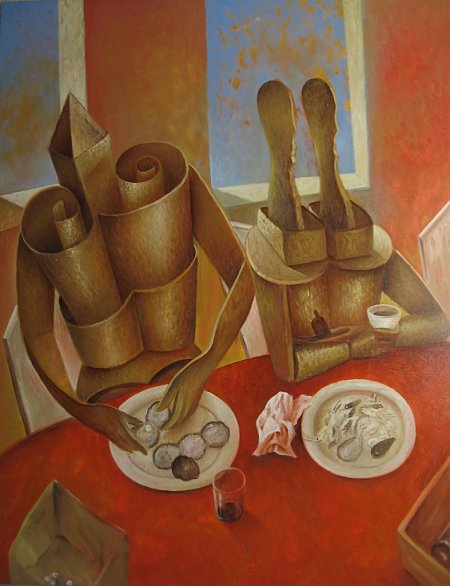
On Nervous Breakdowns
Although I had never witnessed an actual nervous breakdown, I possessed an intuitive understanding of its mechanics. I knew, for example, that it didn’t happen gradually, like the onset of a bad mood. Rather, a nervous breakdown struck, abruptly and fiercely. It was a physical event, a rupturing of the brain (I imagined a small popping sound inside the skull, then the dribbling of something gelatinous), a transformative instant. The victim would suddenly press his fingertips to his head, and his eyes would widen, and his mouth would silently work itself open and closed. Then, like his hapless cousin the heart-attack victim, he would totter backward on his heels, his free arm outstretched and stirring small circles in the air, and he would collapse into the arms of an anguished loved one. As a very last gesture, before being (as they said) taken away, the victim might look heavenward beseechingly; he might clutch at his own limbs and howl with grief; in a voice not recognizably his own, he might emit a final word of existential protest (No! or Why! were the standards). And then, fully broken, he would fall limp.
Witnessed or not, the nervous breakdown—the fact of it, the existence of it—explained a great deal. It explained why certain grownups, such as substitute teachers and bus drivers and camp counselors, seemed to exit one’s life and never be heard from again. It also explained why adults lived the way they did, avoiding excitability and discouraging it in others: any revving-up of the emotions could cause the human circuitry to blow, and the damage wasn’t easily repaired. Needless to say, I lived my own days concerned about the adults around me, watchful of them, vigilant of the possibility that they could agitate themselves into disaster. My parents were likely candidates (they staged loud battles in the kitchen), but so were most of their friends, who were attorneys and physicians and senior executives and suburban housewives, decorous people who smiled tightly and jiggled their iced cocktails nervously. There was little I could do for them, of course. But I could ready myself for the spectacle of their decline. I could bear witness.
Naturally, I sometimes wondered whether I would one day have a nervous breakdown myself. I didn’t feel particularly prone to that fate; I was a fretful kid but not an anxious one. And I wasn’t exceptionally attuned, as I thought some people must be, to life’s turbulences. Still, I knew that a person’s emotional footing was never guaranteed. Adulthood clearly had a way of smashing things to hell, and I was resolved not to be caught unawares. When the time came, I would stay on the lookout for stressors. I would step with caution. I would move delicately and deliberately—and above all, calmly—through whatever lay ahead.
*
